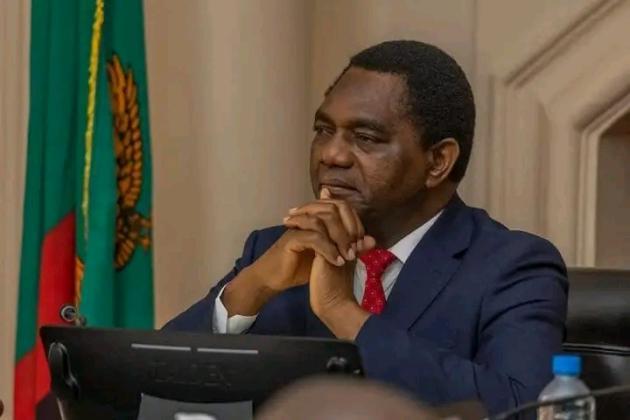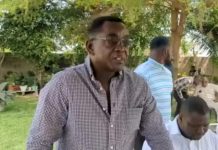Africa-Press – Zambia. Zambia’s energy crisis has shifted from an inconvenience to a decisive political variable. Nowhere is the frustration louder than in Lusaka and the Copperbelt, the two cosmopolitan blocs that decide who occupies State House next year. Three hours of daily power has become routine. Small businesses are drowning. Urban voters are agitated. And political actors are shaping narratives with precision.
When Brian Mundubile stepped onto the PF Secretariat platform this week and declared that the UPND “has failed at everything,” his crowd roared the loudest when he mentioned loadshedding. It was the sharpest applause line of his speech because the pain is real, and the party knows it. But the punchline came later, and unexpectedly, from inside PF itself.
Dr. Chitalu Chilufya, another PF president aspirant, broke ranks last night. In an unusually candid moment, he told Emmanuel Mwamba that the PF government cannot escape blame for the current energy crisis. His argument was simple. Zambia’s population grew rapidly. Industrial demand expanded.
PF built legacy projects, but not nearly enough to match future needs. It was an admission the PF base did not want to hear, but it was true.
This distinction matters because the public square is now full of lies. PF influencers claim the entire crisis began in 2022. UPND influencers insist everything wrong was inherited. Both positions distort the truth. The drought exposed fundamental weaknesses that were years in the making, including PF’s failure to diversify power generation when Kariba first started showing stress.
At the same time, the UPND’s heavy leaning on solar has not provided immediate relief. New solar projects are being commissioned, but grid-scale impact will take years, not months.
Our social media sentiment monitoring tools show that loadshedding now ranks as the most emotionally charged issue among urban voters. Higher than food prices. Higher than fuel. Higher than unemployment. In Lusaka’s estates and Copperbelt’s mining corridors, the anger is bipartisan.
Some UPND supporters feel betrayed. PF supporters feel vindicated. Non-aligned voters feel abandoned. These two provinces are the largest voting blocs in the country, and every political strategist knows that losing them means losing the election.
This is why both parties are panicking. PF is weaponising hardship to rebuild relevance. The governing party is struggling to control the narrative because solar announcements cannot compete with the lived reality of darkness. And the online battlefield is unforgiving.
Urban sentiment is drifting away faster than official communication can catch it.
The truth is uncomfortable. Zambia’s energy crisis is not a one-year failure. It is a decade-long accumulation of poor planning, regional drought, infrastructure gaps, and political short-termism.
PF must carry its share of blame. UPND must carry the responsibility of fixing what it inherited. And voters, particularly in Lusaka and the Copperbelt, will judge both without mercy.
The 2026 election will not be decided by rallies, slogans or tribal messaging alone. It will also be decided by electricity. Every hour without power is turning an undecided voter into a determined one. The next election will be decided in the dark.
📩 We invite readers to share their thoughts with us at [email protected]
© The People’s Brief | Ollus R. Ndomu | 15/11/25
For More News And Analysis About Zambia Follow Africa-Press







